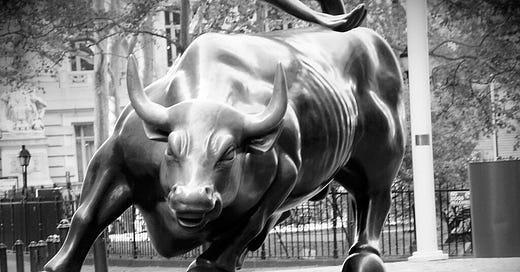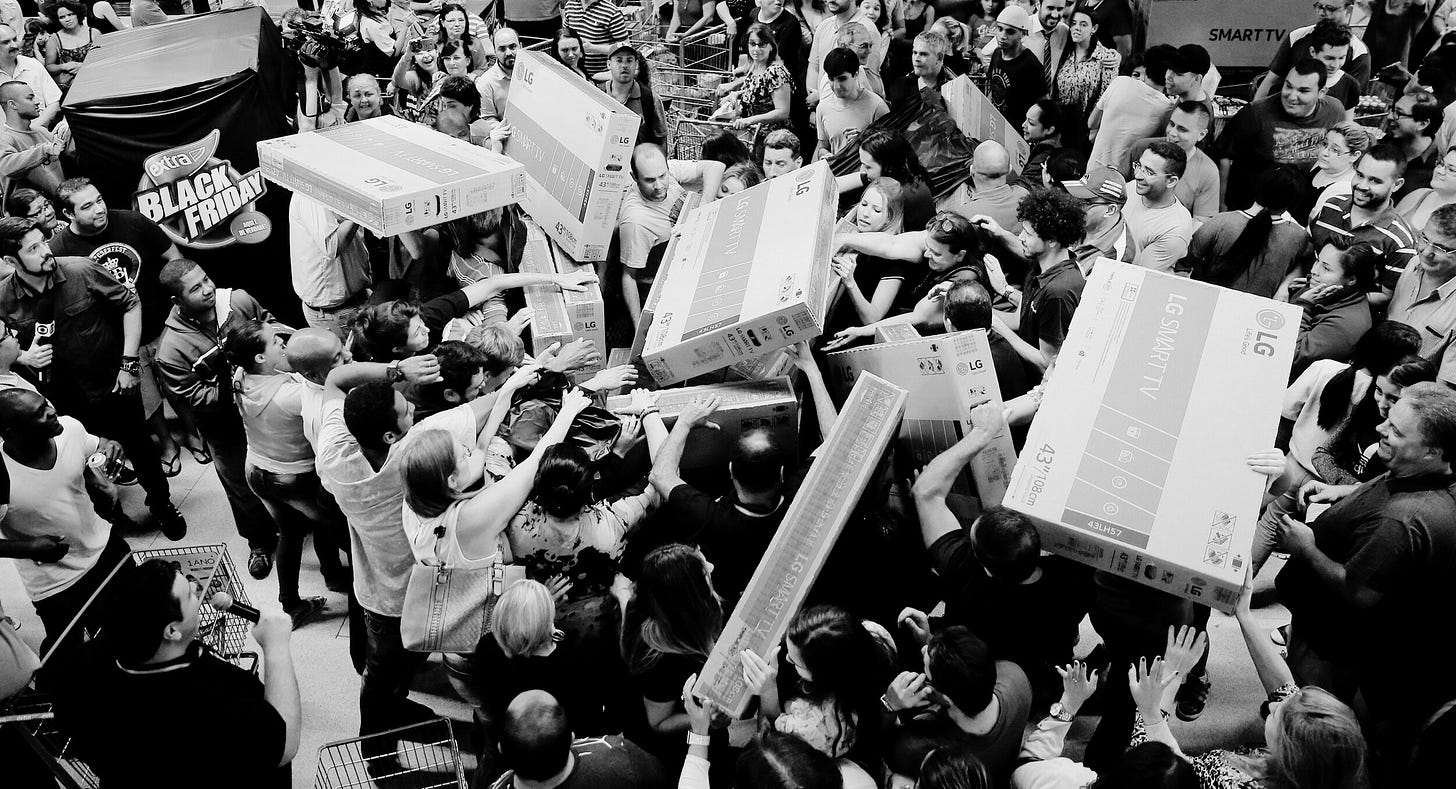The rise of finance. An explosion of consumption culture. Rule by markets. Human capitalism and the ideology of self-actualisation. With these components in place, the Global Minotaur had all it needed. US consumers and businesses imported goods from foreign countries; the same countries stored their capital in US banks; the US banks produced enormous profits with that capital, packaging it into derivatives, lending it to US consumers to buy cheap products. By following neoliberal principles, the US built their Global Minotaur. They remained the world’s hegemon. But their power had a price—increased debt, decreased stability, rising instability, the destruction of shared prosperity.
The ‘controlled disintegration’ of society under neoliberalism inevitably had its effects upon the psyches of its subjects. Where the Keynesian welfare state guaranteed a modicum of safety, care and economic certainty for its citizens, neoliberalism guaranteed nothing but the privatisation of public space, relentless economic competition in every sphere of life, and the omnipresence of markets. In the place of the ground offered by systems of social care, neoliberalism offered groundlessness. Basic ontological uncertainty was the condition of life under neoliberal capitalism. For without wealth, nothing—not our livelihood, our homes, our health, our lives, nor our ability simply to be—was secure. Money, its value untethered from its grounding in gold since the end of Bretton Woods, floating freely upon the force of collective desire, became our only defence against oblivion. Work and self-exploitation became the only means of attaining that money.
In this way, neoliberalism’s political groundlessness was translated into psychological groundlessness for its citizens. With the destruction of the welfare state and the increased privatisation of property, neoliberal capitalism and its politics effectively made life outside the market impossible. It answered our dreams of being free from competition with a quiet death threat. Participate, it said, or you shall receive nothing. Faced with this violence, this existential threat to the self, disintegration anxiety became our basic structure of feeling, while the injunction to work, labouring for corporations whose only purpose was often to profit off unnecessary consumption, became absolute.
Neoliberalism produced a system of anxiety and totalitarianism. To ward off our anxiety and secure our being, self-exploitation became our paramount concern. We employed our minds and bodies, now recast as human capital, in the game of accumulation, gathering wealth to guarantee our continued inclusion within the market. And propelled by this existential fear, we descended into a form of compelled egotism. We conformed with our society’s ego ideal—the self-made success that maximised their returns on their human capital. We invested all our narcissistic love in these ideals, striving to cultivate and grow our self-investments, to achieve a perfect commodification of the self. We tried as hard as we could to ‘manifest our potential.’ We became individuals. Those that succeeded were rewarded with the best of what the market could offer. In their moments of respite, they were free to enjoy. Those that failed: shame, poverty, the sense that one was a useless machine. Nobody, however, was free from the manic anxiety, emerging from the ground of being.
Neoliberal politics, then, created social conditions that encouraged people to behave as if they were the economic actor at the centre of Friedman, Becker and Buchanan’s models—self-interested, rational, utility-maximising beings. Narcissistic, psychopathic, driven by egotism and the fear of breakdown. One can see the irrational fear, however, that lurks beneath our narcissistic commitment. Like the ‘free market’ Hayek valorised, such egotism is not born of nature. It was born of domination and terror.







